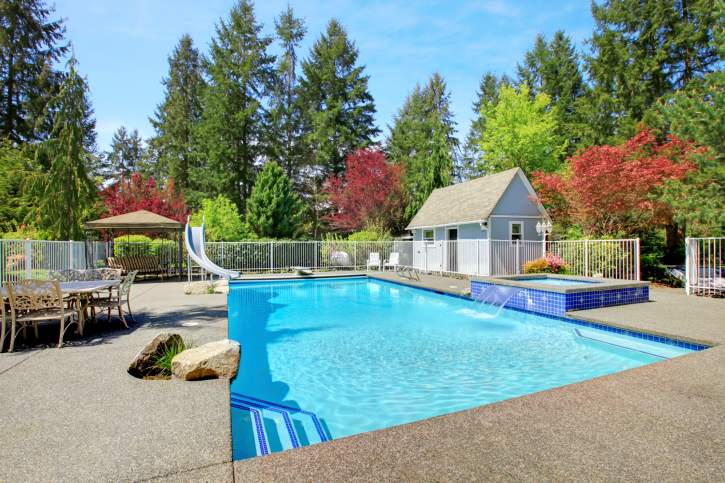
How Much Does It Cost to Maintain a Pool Annually?
Share
Owning a pool can be a dream come true for many, providing a personal retreat and a place for relaxation and entertainment. However, before diving into the joys of pool ownership, it is essential to understand how much does it cost to maintain a pool. This financial commitment goes beyond just the initial investmentyou need to consider various ongoing expenses.
In this comprehensive guide, we'll break down the different costs involved in pool maintenance to help you plan your budget effectively. Understanding these factors is crucial for tech enthusiasts and professionals who appreciate precise calculations and efficient resource management in their projects.

Key Factors Influencing Pool Maintenance Costs
Understanding the costs associated with maintaining a pool involves several factors, such as:
- Type of Pool: In-ground vs. Above-ground
- Size: The larger the pool, the higher the cost of upkeep
- Location: Climate impacts maintenance needs
- Type of Sanitization: Saltwater vs. Chlorine
1. Initial Setup Costs
Before we delve into ongoing costs, its critical to note the initial setup expense. Depending on the type of pool, you could spend a considerable sum upfront. A simple above-ground pool might run anywhere from $2,500 to $5,000, while in-ground pools can vary from $30,000 to upwards of $100,000 based on design, materials, and custom features.
2. Regular Maintenance Expenses
Maintaining a pool typically requires various services that contribute to the monthly or annual expenses:
- Cleaning Services: Professional pool cleaning can cost around $100 to $300 per month depending on frequency and pool size. You might also choose to do it yourself.
- Chemicals: The expense for chlorine, pH balancers, and other chemicals can run between $200 to $1,000 yearly.
- Equipment Maintenance: Pumps, filters, and heaters may require periodic servicing or replacement, adding another $200 to $1,000 annually.
3. Utility Costs
Another essential cost area involves utilities such as water and electricity:
- Water: Refilling a pool can add to your water bill; a typical pool holds around 20,000 gallons, costing roughly $100 each time.
- Electricity: Pumps and heaters increase your energy consumption, which could amount to an additional $30 to $150 monthly.

Potential Additional Costs
There are unforeseen expenses as well:
- Repairs: Over time, components of your pool may wear out, resulting in repairs costing hundreds or thousands of dollars.
- Insurance: Liability insurance may increase due to pool ownership.
- Landscaping: Maintaining a safe and attractive area around your pool requires extra investment.
Can Technology Streamline Pool Maintenance Costs?
As tech enthusiasts, leveraging technology can help manage and perhaps lower maintenance costs. Smart pool maintenance devices can monitor chemical levels, automate cleaning, and even control heating remotely. Investing in technology may have an upfront cost but can lead to significant savings over time.

How to Lower Your Pool Maintenance Costs
By implementing some practical strategies, you can better manage those costs:

Conclusion
Managing a pool entails several costs throughout the year, including maintenance, utility, and potential repair expenses. Understanding how much does it cost to maintain a pool helps set realistic expectations and budgeting. Ultimately, with careful planning and possibly incorporating technology, pool ownership can turn from a daunting financial burden into a delightful enhancement to your home.
FAQs About Pool Maintenance Costs
1. What is the average annual cost of pool maintenance?
The average annual cost can range from $3,000 to $8,000, depending on various factors like service frequency, pool size, and geographical location.
2. Can I maintain my pool without hiring professionals?
Yes, with proper knowledge and tools, you can maintain your pool yourself, which can save substantially on costs.
3. What factors can lead to unexpected pool expenses?
Unexpected repairs from equipment failure, severe weather, or unforeseen changes in local regulations can lead to additional expenses.
As an Amazon Associate, I earn from qualifying purchases.
